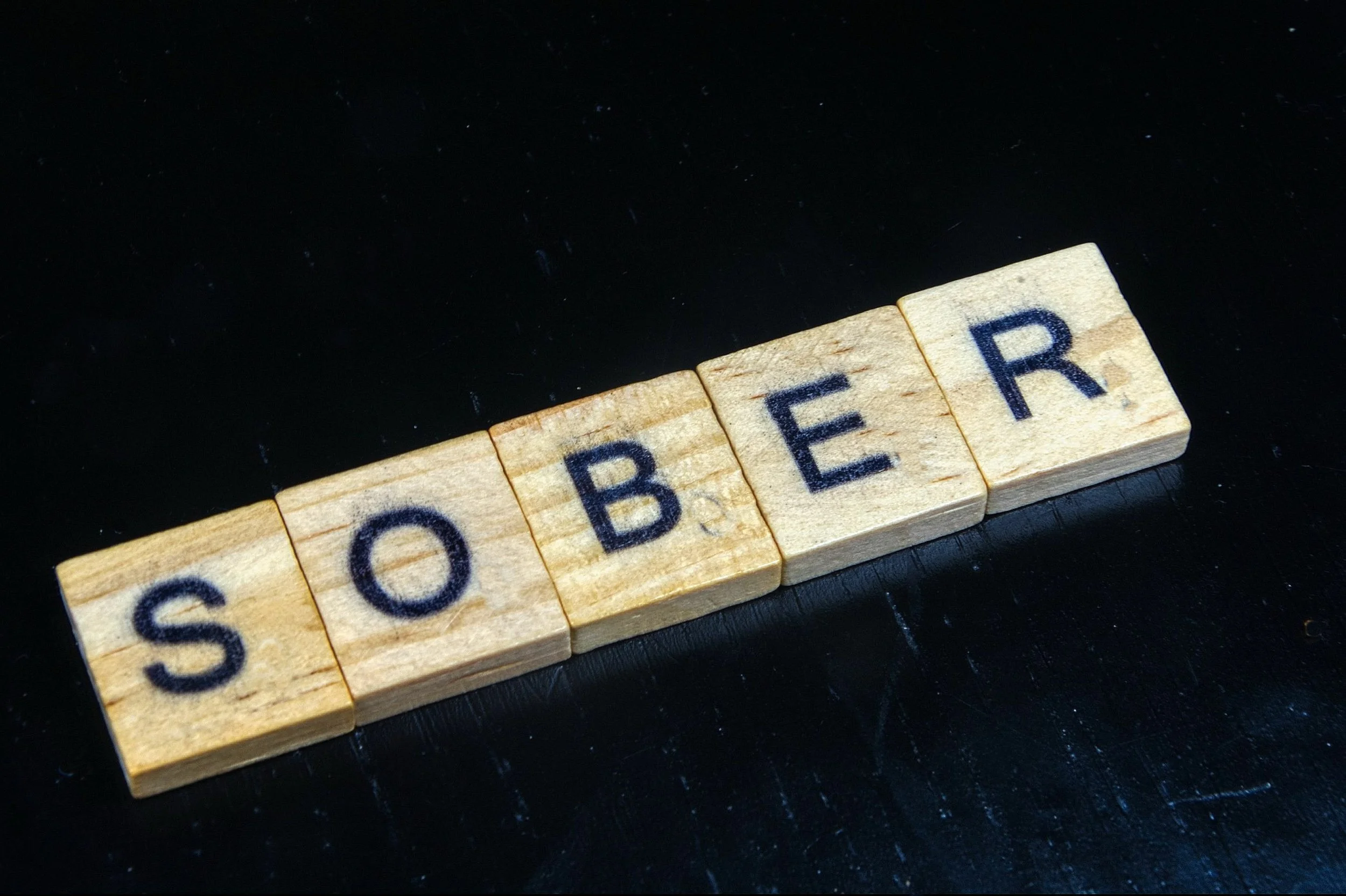How Early Rehab Programs Simplify The Journey To Sobriety
Key Takeaways
1. Early Intervention is Crucial: Addressing addiction at its earliest stages increases the chances of successful treatment and long-term recovery, helping prevent further harm and improving treatment outcomes.
2. Holistic Therapies Complement Traditional Treatments: Integrating therapies like yoga, meditation, acupuncture, and art therapy into addiction treatment helps address the physical, emotional, and spiritual aspects of recovery, promoting overall well-being.
3. Personalized Treatment Plans Lead to Better Results: Rehab centers create individualized treatment plans tailored to each person's unique needs, ensuring more effective care and addressing underlying issues such as mental health concerns and co-occurring disorders.
4. Overcoming Stigma Encourages Recovery: Tackling the stigma surrounding addiction helps individuals feel more comfortable seeking help. By creating a supportive and understanding environment, individuals are more likely to access treatment and take the first step toward recovery.
5. Aftercare Programs Are Essential for Long-Term Success: Aftercare programs, including support groups and outpatient services, provide continued support and guidance after the initial treatment, helping individuals maintain sobriety and navigate the challenges of daily life.
Starting the journey to sobriety can feel challenging, but early rehab programs provide the necessary support and structure to simplify the process. With addiction being a complex issue that affects various aspects of a person's life, early intervention helps tackle these challenges head-on. Rehab centers offer an environment where patients can focus solely on their recovery, giving them the best chance for long-term success.
With professional guidance and a well-rounded approach, early rehab programs ensure that those seeking sobriety have the tools and resources required to navigate the path to recovery confidently. Continue reading to learn more about how early rehab programs simplify one's journey toward sobriety.
The Advantages of Early Intervention in Addiction Treatment
Tackling addiction early on really boosts the odds of effective treatment and lasting sobriety. The following are some of the benefits of getting help sooner rather than later in addiction recovery.
Prevents Further Harm: Early treatment helps minimize the risk of further physical, emotional, and social damage caused by substance abuse.
Increases Success Rates: Starting treatment early allows individuals to receive care before addiction becomes more entrenched, leading to better outcomes.
Reduces the Severity of Addiction: By intervening early, individuals can prevent their substance use from escalating into more serious dependency, reducing the need for intensive care.
Personalized Treatment: Early intervention allows for the development of individualized treatment plans that cater specifically to a person's needs, increasing the effectiveness of the treatment.
Reduces Withdrawal Symptoms: Addressing addiction early helps to manage withdrawal symptoms more effectively, ensuring a smoother and more comfortable recovery process.
Improved Mental Health: Early intervention can also address any co-occurring mental health concerns, preventing these issues from worsening and supporting overall emotional well-being.
Stronger Support Systems: Individuals receiving early treatment often build stronger support networks, including family involvement and participation in support groups, which are vital for long-term recovery.
Lower Healthcare Costs: Treating addiction early often leads to fewer medical complications down the road, resulting in lower overall healthcare costs.
Prevention of Relapse: When the root causes of addiction are identified and addressed early on, patients are equipped with effective coping mechanisms, reducing the risk of relapse later in recovery.
Overall, early intervention in illegal drugs and alcohol addiction treatment sets the stage for a healthier, sober life by offering timely support, medical care, and therapeutic services that lay the foundation for successful recovery.
Comprehensive Rehab Services
Rehab centers offer various services that work together to provide a holistic approach to recovery. These services are designed to treat the whole person—mind, body, and spirit—ensuring that every aspect of an individual's well-being is addressed during their journey to sobriety. Here are some of the key services patients can benefit from:
Residential Treatment Programs: Intensive, round-the-clock care in a supportive environment to focus solely on recovery.
Behavioral Therapies: Therapy sessions aimed at helping patients overcome detrimental habits associated with addiction.
Individualized Treatment Plans: Personalized care plans that are tailored to each patient's specific needs, ensuring more effective outcomes.
Medication-Assisted Treatment: Using FDA-approved meds can really help with withdrawal symptoms and cravings, especially for those dealing with opioid or alcohol use issues.
Holistic Therapies: Non-traditional treatments such as yoga, meditation, acupuncture, and art therapy, which help improve overall well-being and reduce stress.
Group Therapy Sessions: Peer support through group therapy, where patients share experiences and strategies for managing addiction.
Life Skills Training: Educational sessions designed to help patients build essential skills for life after rehab, such as job readiness, financial management, and healthy relationships.
Physical and Occupational Therapy: Treatments focused on improving physical health and helping patients regain their independence in daily activities.
Support Groups: Ongoing support from peers who are also in recovery, providing a sense of community and shared understanding.
Medical and Psychiatric Care: Continuous monitoring by medical professionals to manage any underlying mental health concerns or medical conditions during the recovery process.
These services work hand in hand to form a complete care plan that encourages long-term recovery and supports people in establishing a firm ground for a healthy, sober lifestyle.
Aftercare Programs and Transitional Care for Long-term Success
After completing a residential treatment program or outpatient program, individuals transition into aftercare programs that continue their treatment journey. These programs may include support groups, day programs, and partial hospitalization, all designed to help individuals adjust back to everyday life while maintaining sobriety. The goal of aftercare is to provide emotional support and resources to navigate potential triggers or relationship issues.
Transitional care allows individuals to gradually ease back into their everyday routines, armed with coping mechanisms and support from medical professionals. During this phase, ongoing therapy, including group sessions and occupational therapy, helps individuals continue healing. Rehab centers ensure that their clients are not left to face these challenges alone, offering continued guidance in the form of outpatient substance abuse treatment or medication-assisted treatment, if necessary.
The Impact of Holistic Therapies in Addiction Treatment
Holistic therapies complement traditional treatment modalities like behavioral therapy and medication-assisted treatment by helping individuals reconnect with themselves and find balance in their lives. Techniques such as yoga, meditation, acupuncture, and art therapy promote relaxation, stress relief, and mindfulness, which are essential for managing cravings and reducing anxiety during recovery. These therapies help individuals develop coping strategies that support long-term sobriety, fostering emotional resilience and inner peace.
Aside from stress reduction and emotional healing, holistic therapies also encourage self-awareness and personal growth. Practices like mindfulness meditation can help individuals become more aware of their triggers and emotional responses, allowing them to better manage challenging situations without resorting to substance use. Art therapy offers a way for people to express themselves, aiding them in working through past traumas or negative feelings that might have played a role in their addiction. By integrating these holistic approaches, addiction treatment becomes more comprehensive, offering patients a well-rounded approach to healing that addresses both the mind and body.
The Role of Emotional Support in Recovery
Emotional support is a critical component of the rehabilitation process. It's common for those on the path of sobriety to face mental health concerns that can complicate their recovery. Addiction specialists work with clients to address these issues through therapy and individualized treatment plans. By helping individuals confront their emotional baggage and relationship issues, early rehab programs foster a healthy emotional state, which is crucial for long-term sobriety.
Support groups provide a comfortable environment where people can share experiences and struggles with others who may identify with what they're going through. These groups not only provide emotional support but also offer practical advice and shared experiences that can make recovery feel less isolating. It's through these connections that many find the strength to keep pushing forward.
Overcoming the Stigma of Addiction and Seeking Help
One of the biggest hurdles people face when trying to get help for addiction is the stigma that comes with it. Many of those struggling with substance use disorders feel ashamed or embarrassed, fearing judgment or rejection from society, family, and even friends. This societal pressure can prevent people from reaching out for treatment, causing them to suffer in silence and delaying their recovery. Overcoming this stigma is crucial in encouraging individuals to take the first step toward getting the help they need, whether through rehab centers, support groups, or therapy.
Education and open conversations about addiction can play a pivotal role in dismantling these harmful stereotypes. Seeing addiction as a medical issue instead of a personal shortcoming allows us to foster a kinder and more supportive atmosphere for people looking for help. Encouragingly, many rehab centers and support groups now prioritize creating safe, non-judgmental spaces where individuals can feel comfortable sharing their struggles. Reducing the stigma around addiction fosters an atmosphere of support and acceptance, making it easier for those affected to seek help and embark on the road to recovery.
Insurance Coverage and Access to Rehab Centers
One of the challenges many people face when seeking addiction treatment is understanding insurance coverage. Thankfully, many rehab centers accept insurance plans, making rehab services more accessible to those who need them. From outpatient programs to intensive residential care, there's often an option for everyone based on their financial situation.
Some treatment centers, besides providing insurance coverage, might have financial aid programs to support people seeking addiction treatment. Overall, rehab services are becoming more available to everyone, making sure that financial hurdles don't stop anyone from getting the help they deserve.
Conclusion
The road to sobriety doesn't have to be overwhelming. By seeking early intervention and accessing the appropriate rehab services, you set yourself up for a life of recovery. With the support of addiction specialists, a comprehensive treatment process, and the emotional support provided through group sessions and aftercare programs, individuals are empowered to heal and rebuild their lives. Remember, whether through outpatient programs, residential treatment, or medication-assisted treatment, recovery is possible, and there are many paths to achieving a healthier, sober life.
If you're ready to take the first step, consider finding a rehab center near you to begin your journey toward recovery. With the right resources, support, and commitment, you can achieve long-term sobriety and enjoy a life full of hope and healing.




